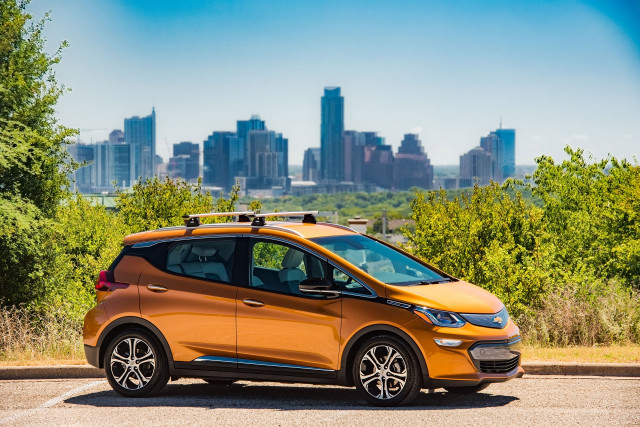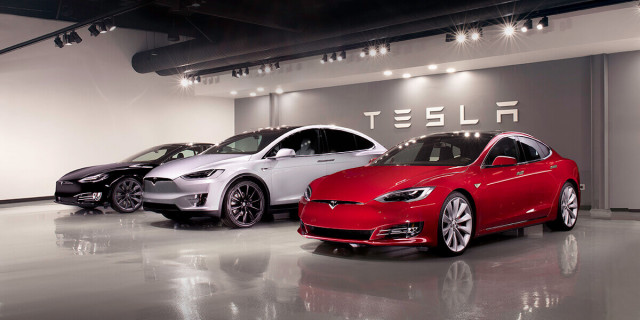Consumers have less than three days to buy a plug-in Chevy Volt or Bolt EV from GM and still qualify for the full $7,500 federal tax. And yet Chevrolet isn't making any final push to clear out inventories of either car.
Nor does GM have any plans to cut prices after the tax cut expires on Monday, as Tesla did with its cars after the tax credit began to wind down.
GM is the second automaker to face the "tax credit cliff," as Tesla CEO Elon Musk has called it, after delivering 200,000 plug-in cars. Tesla passed that limit last July, which caused the tax credit to drop from the full $7,500 to $3,750 on its cars starting January 1. GM, which began selling Chevy Volts two years before Tesla introduced the Model S, passed the limit in November, meaning its buyers are only eligible for $3,750 starting Monday. After that, the credit on Chevrolet plug-ins will drop to $1,875 in September. (Tesla faces that drop in June.)
GM spokesman Jim Cain confirmed to Reuters that the company will not cut sticker prices on the Bolt EV in reaction to the tax-credit drop. "It is easier to react to the market by working with dealers and your marketing team than it is to change sticker prices," he said.
With fixed manufacturer prices and no dealers, Tesla didn't have that option.
Still, so far Chevrolet doesn't even seem to be offering any further discounts on either car to provide buyers an incentive to purchase while they can still get the larger tax credit.
When we checked with our partners at CarsDirect about special deals, we found that Chevrolet is offering big discounts for Bolt EV buyers, but no bigger than they have been in recent months. The deals also aren't available to lessees. Buyers can get up to 14 percent off the sticker price of a Bolt EV. The plug-in hybrid Volt is one of the few GM models that is not eligible for that deal.
Bargains are much skimpier on the scant inventory remaining on the discontinued Chevy Volt plug-in hybrid. There, the best deal is a lease for $389 a month with $4,029 due at signing, for an effective monthly cost of $402 per month. That compares with a $209 a month lease on the Volt's closest rival, the Honda Clarity Plug-in Hybrid, with $2,299 down and an effective cost of $273 a month. Honda plug-ins will be eligible for the full tax credit for several years.
One dealer in Northridge, California, is offering $8,515 off the price of a Bolt EV before buyers even walk in the door. The same dealer is offering a $3,608 discount on a Volt in stock.














